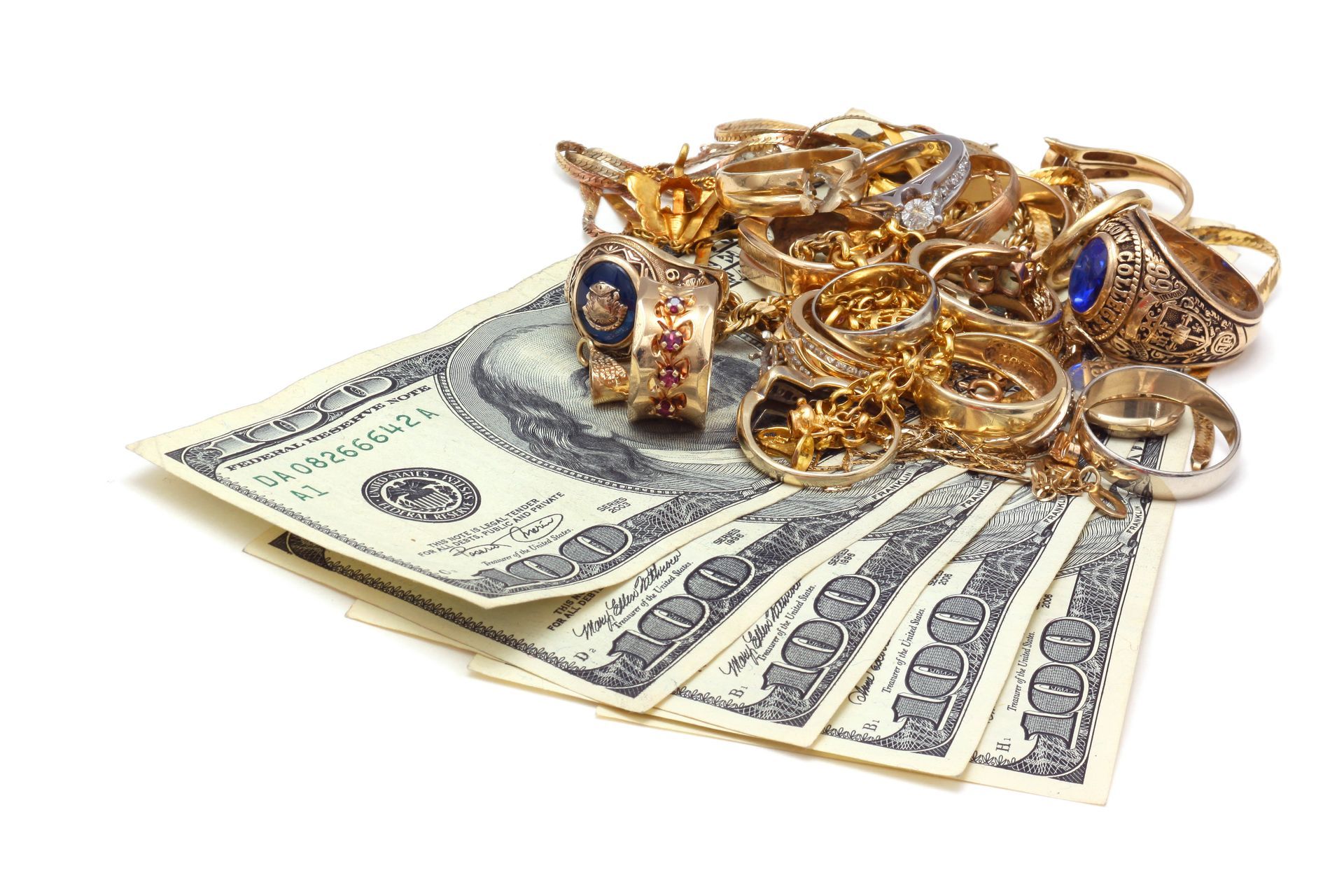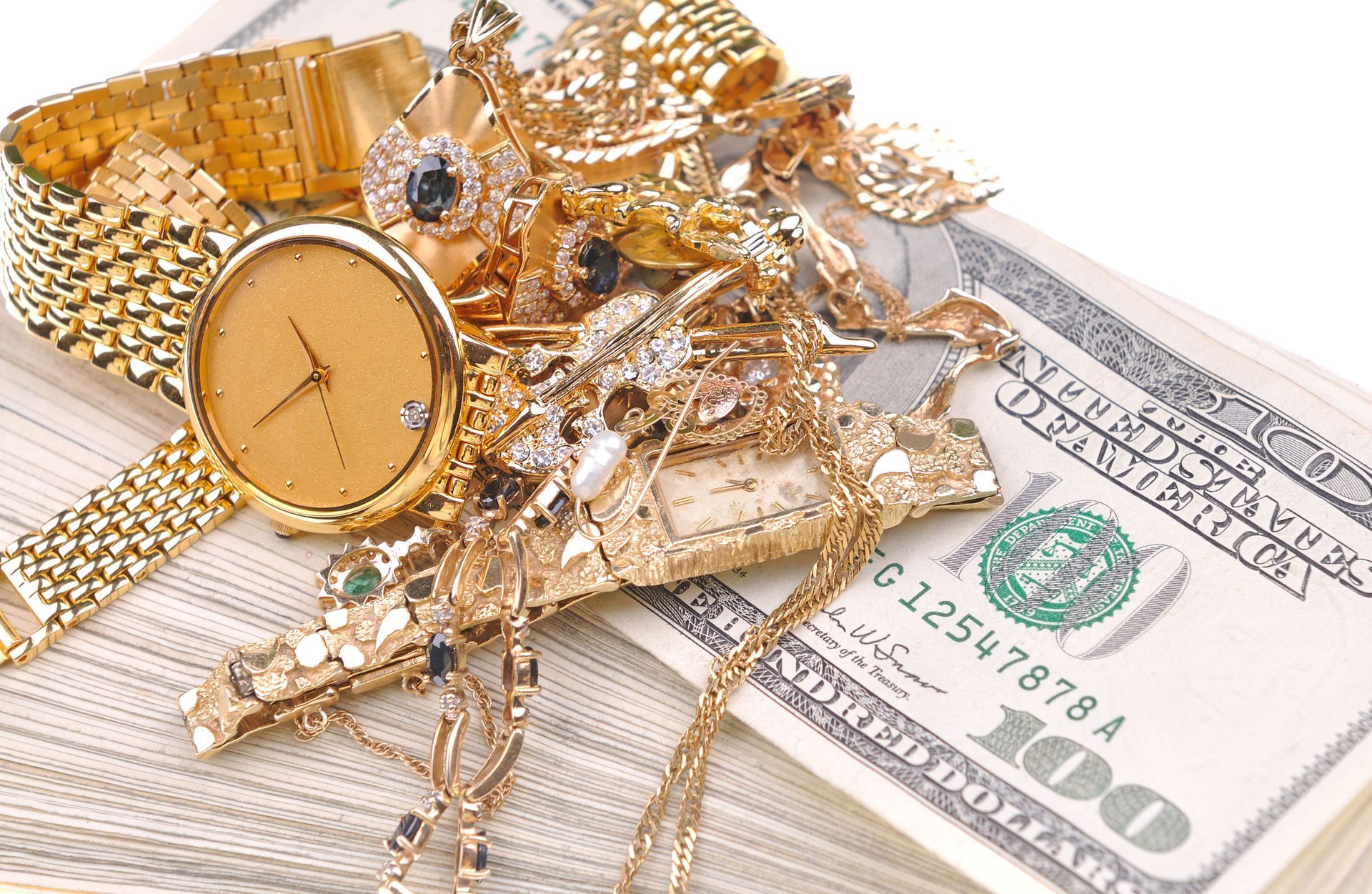November 21, 2025
The decision to sell gold, whether it's jewelry, coins, or bars, is a significant one, and it's crucial to ensure that you're getting the best possible deal. When approaching a local gold buyer, knowing the right questions to ask can make all the difference. This article outlines the essential questions you should pose to your local gold buyer to ensure a transparent, fair, and profitable experience.
1. How Do You Determine the Value of Gold?
Determining the value of gold is a critical step in the selling process. First, it's important for sellers to understand market rates. Gold prices are constantly fluctuating based on global economic conditions and market demand. Local gold buyers assess these market rates, often referencing the gold spot price, which is the current market price at which gold can be bought or sold for immediate delivery. This global rate is a key factor that influences how local buyers determine the price they are willing to pay.
The process of appraisal is another essential component in determining gold's value. Experienced gold buyers conduct detailed assessments of the gold items, considering factors like weight, purity, and condition. Appraisers might use distinct valuation methods to ensure accurate pricing, and an informed seller should be aware of these processes. Different types of gold, such as coins or bars, may require different valuation approaches. Sellers should question the appraisal techniques to guarantee that they receive a fair deal.
There are several factors affecting gold value during an appraisal. Intrinsic aspects like karat purity and the item's state significantly impact the quoted price. Additionally, external factors such as global economic trends and political events can alter gold's market value. According to State Street, More than 60% of millennials now include gold in their portfolios, that is significantly higher than the 35% of Gen X and 20% of boomers who hold gold. This demographic shift is an influencing factor that appraisers might consider when valuing gold, given the augmented interest and demand among millennials.
2. What is Your Experience in the Gold Buying Industry?
Experience in the gold buying industry is crucial for establishing trust and credibility. Potential sellers should inquire about the buyer's credentials and years of experience. A well-established gold buyer will often possess a thorough understanding of market trends and fluctuations. This experience can contribute to more accurate appraisals and fair prices. Buyers who are deeply entrenched in the industry are typically well-informed about both historical data and prevalent trends, benefiting those wishing to sell their gold.
Membership in professional organizations is another indicator of reliability and commitment to ethical practices. Reputable gold buyers may be members of national or international trade associations, suggesting adherence to industry standards. These memberships often require adherence to a formal code of ethics, ensuring buyers' integrity and professionalism in transactions. Sellers should ask about these affiliations as they can offer an additional layer of trustworthiness. Professional references and affiliations can further validate the buyer's reputation in the industry.
3. How Do You Ensure Transparency and Fairness in Your Transactions?
Transparency and fairness are cornerstones of ethical gold buying practices. Trustworthy gold buyers provide written quotes detailing the item's weight, purity, and the offered price. This documentation helps eliminate misunderstandings and ensures that both parties are clear on the transaction's terms. By insisting on written quotes, sellers can compare offers from different buyers, ensuring they receive the best possible price for their gold. A transparent process fosters trust and confidence in the seller about the transaction's fairness.
Fees and commissions play a crucial role in the net amount a seller receives. An honest gold buyer will explain all potential fees upfront, ranging from commission charges to handling costs. Understanding these financial aspects of the transaction prevents unexpected deductions on the final payment. Additionally, the use of certified scales and equipment in weighing gold is an essential transparency measure. Sellers should request to view the weighing process to verify the accuracy of the measurements.
4. Can You Explain What Affects the Pricing of Gold?
The pricing of gold is influenced by a multitude of factors, beginning with the current gold spot price. This spot price is the baseline figure that reflects the current market value of gold per ounce, typically fluctuating due to global economic conditions. Sellers must understand that daily changes in this price can impact the offer they receive for their gold. By monitoring the spot price, sellers can time their transactions to coincide with favorable market conditions. Inquiring about a buyer's methods for adjusting their offers based on these fluctuations is vital.
Gold's condition and purity are significant contributors to its final pricing. Items of higher karat value, indicating greater purity, will generally fetch higher offers. Similarly, the physical condition of the gold, whether it's jewelry with an intact chain or coins without scratches, can affect its resale value. From an investment perspective, the demand for this precious metal has seen a striking trend: more than 60% of millennials hold gold in their portfolios. This figure from State Street illustrates the growing reliance and trust in gold as a secure investment among younger generations, further boosting demand and potentially affecting prices.
5. Are There Any Additional Fees or Payments I Should Be Aware Of?
When selling gold, understanding any potential fees or payments is essential to securing the best deal. Some gold buyers may charge assessment fees for evaluating the gold's purity and authenticity. Being informed about this can prepare sellers for any upfront costs they might encounter. Additionally, commission charges are common, where a percentage of the sale price is deducted as the buyer's fee. Knowledge of these charges allows sellers to calculate the exact amount they can expect to receive post-transaction.
Other potential costs might include shipping and handling fees if your transaction involves mailing your gold to the buyer. Clarifying these costs upfront ensures that sellers are not caught off guard by unexpected deductions. Furthermore, some payment methods may incur additional charges; for instance, a direct bank transfer might carry a fee compared to receiving cash in person. Sellers should weigh these options to choose the best fit. A comprehensive discussion about these potential costs can prevent misunderstandings and foster a smooth transaction.
6. What Are the Payment Options and How Soon Can I Expect Payment?
Receiving prompt and secure payment is a priority for those selling their gold. Gold buyers typically offer various methods of payment, including cash, bank transfers, or checks. Each method has its pros and cons, with some offering convenience and others remarkable security. Clarifying the payment method upfront ensures sellers receive their preferred form of compensation. The method chosen can also impact how quickly funds become available, making it a crucial point of discussion.
The timeframe for receiving payment varies depending on the payment method and the buy/sell agreement's terms. Generally, cash payments are immediate, while bank transfers or checks might take a few days to clear. Asking the buyer for an estimated timeline allows sellers to plan their finances accordingly. Knowledge of the processing time can be crucial for those who require quick access to funds. By gaining clarity on payment scheduling, sellers can avoid potential cash flow disruptions.
Inquiring with your local gold buyer using these questions not only equips you with the knowledge to get the best value for your gold but also establishes a trustworthy relationship with the buyer. By being informed and prepared, you ensure a smooth and satisfactory transaction experience. Remember, selling gold is not just about receiving money; it's about ensuring that your items are appraised fairly, keeping your interests protected throughout the process.


